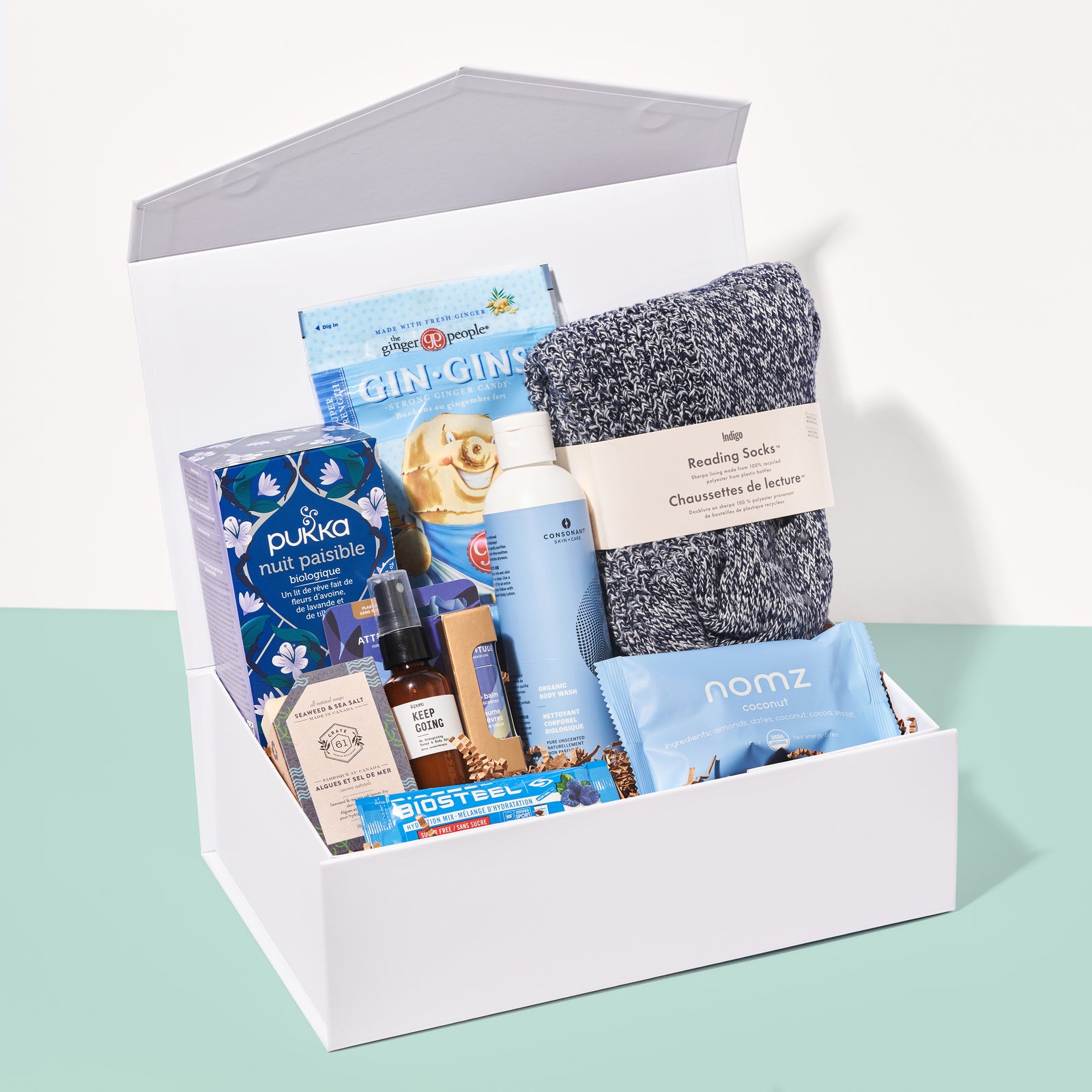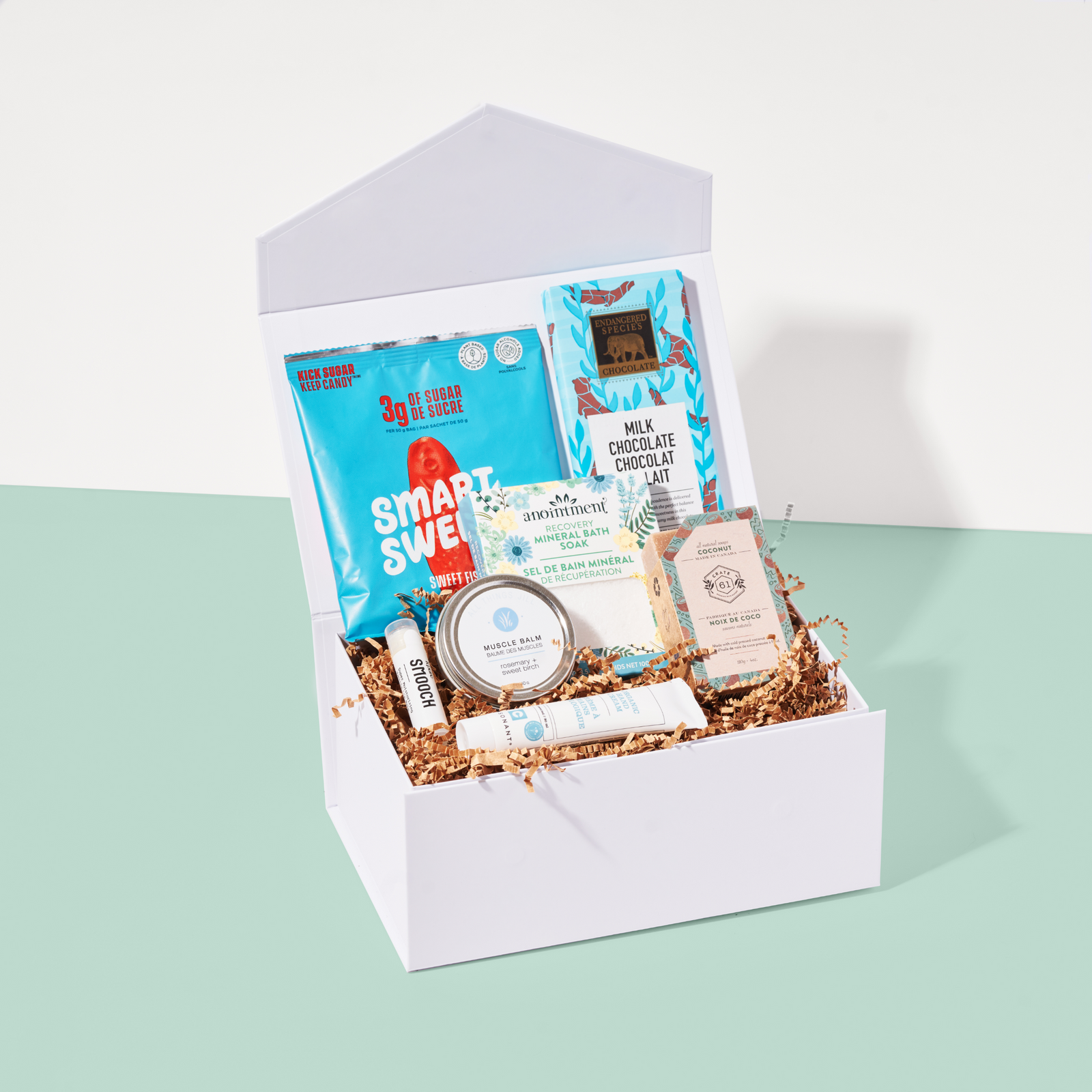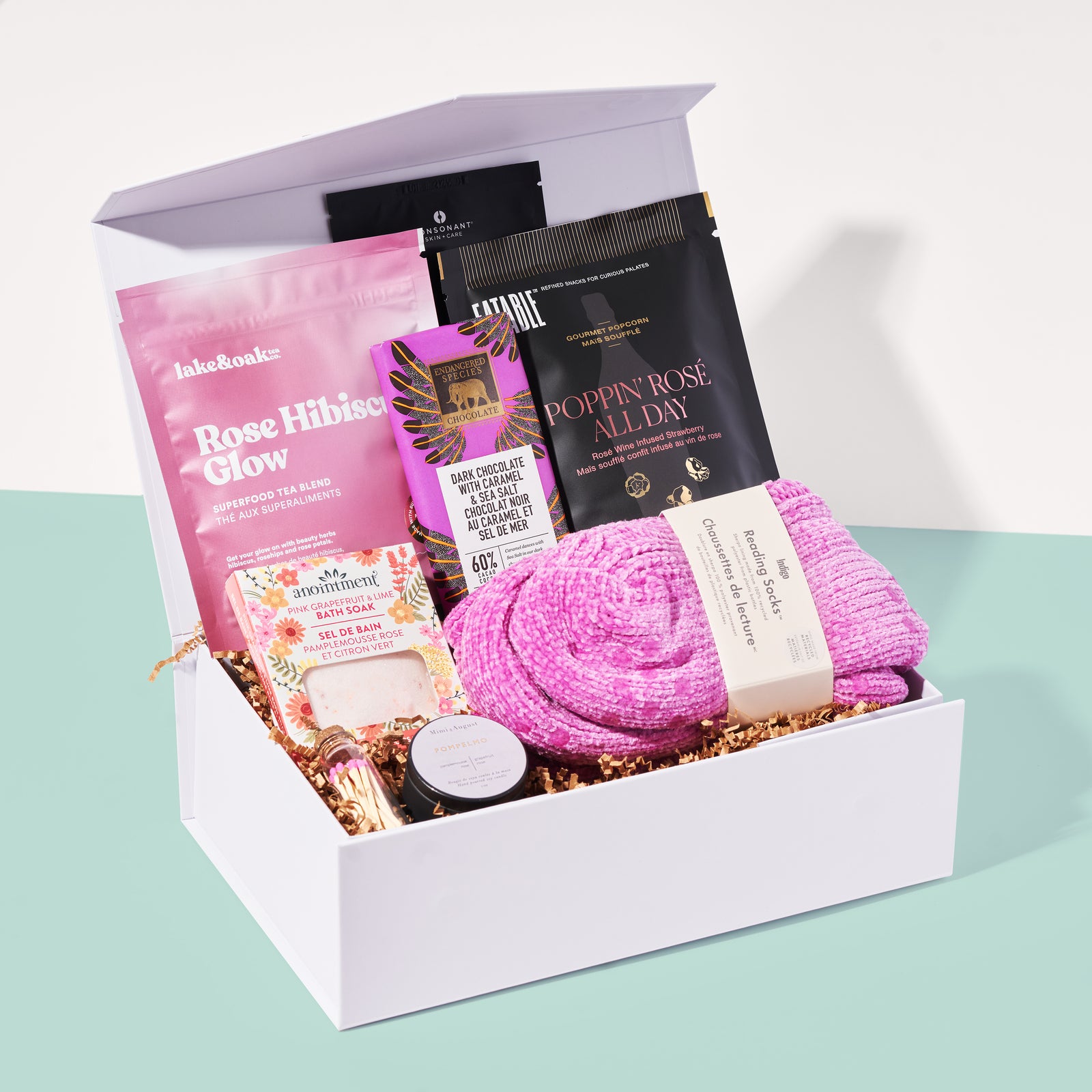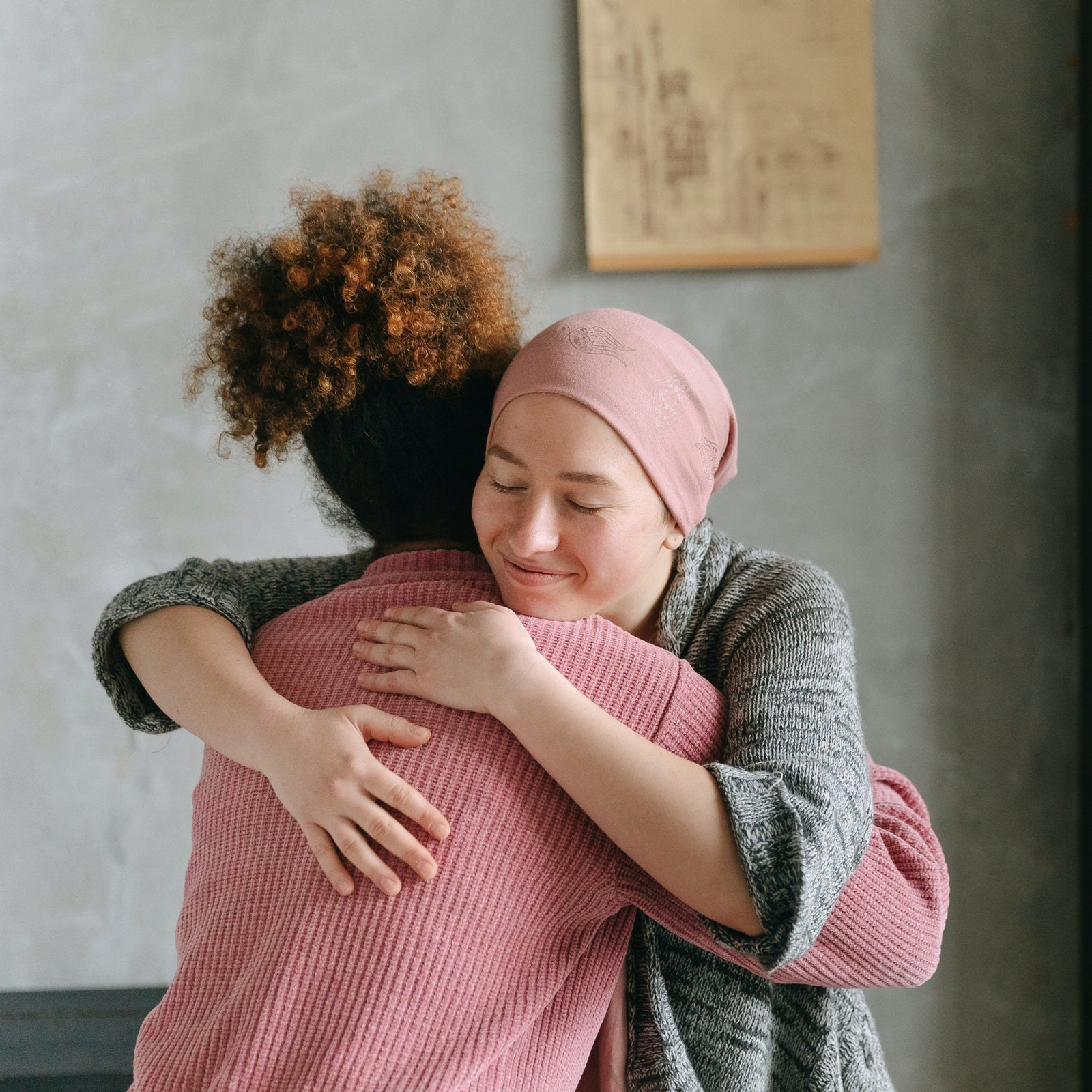October is Breast Cancer Awareness Month - a time when communities, businesses, and individuals come together to raise awareness about the impact of breast cancer. The month is also dedicated to raising funds for breast cancer research, education, diagnosis, and treatment. While we celebrate the remarkable progress that has been made against breast cancer, with earlier diagnoses, improved screening practices and better prognoses, it is still true that 1 in 8 women in Canada are expected to be diagnosed with breast cancer in their lifetime. In this blog post, I will share some of the most valuable information that I’ve learned since my mom’s breast cancer diagnosis two years ago, talk about some of the many misconceptions, explore ways to prevent breast cancer, and share thoughtful ways that Bundles of Zoe helps customers support their loved ones facing this diagnosis.
❤❤❤
I am proud to announce that throughout the month of October, 20% of each Pampered in Pink bundle will be donated to the Canadian Breast Cancer Foundation. With every purchase, $23 will go towards funding further research, education, diagnosis and treatment. Shop here to show your support.
❤❤❤
My journey alongside my mom following her breast cancer diagnosis in 2021 has been an eye-opening and transformative experience. Through some research I learned that there are five stages of breast cancer that describe how far the cancer has spread, with each category carrying different treatment plans and outcomes or prognosis. Here's a simple explanation of each stage:
- Stage 0 (abnormal cells): the earliest form of cancer where abnormal cells are present but have not grown into nearby breast tissue.
- Stage 1 (early-stage): cancer has spread to other tissue in small area but is still confined to the breast area.
- Stage 2 (localized): the tumor is larger and some lymph nodes may be affected but the cancer has not moved into distant parts of the body.
- Stage 3 (regional spread): cancer has spread beyond the breast into more lymph nodes across a wider region.
- Stage 4 (advanced or Metastatic breast cancer): the cancer has metastasized (spread) beyond the breast tissue, to other parts of the body.
Following my mom’s initial diagnosis, I had more questions than answers and struggled to understand the complexities of the disease. It wasn’t as simple as looking at survival rate for her particular stage of breast cancer (doctors did not even want to share this information) or chances of a full recovery post treatment and surgery. One of the first things I learned is that you can never compare one person’s diagnosis or treatment to someone else’s! These stages help doctors determine the best treatment plan and predict the likely outcomes for patients, but there are so many different factors that affect prognosis and survival. Statistics and survival rates are based on the experience of groups of people, and they cannot be used to predict how successful a particular person’s treatment will be.
Individuals facing a breast cancer diagnosis don't always react as you might anticipate; their emotional responses can vary widely, from deep depression to remarkable hopefulness. Most importantly, I learned the significance of providing unwavering support, regularly checking in on their well-being, and refraining from making judgments. Breast cancer taught me the importance of empathy and compassion in supporting our loved ones through their individual paths of healing and recovery.
A few misconceptions
Certainly, there are several misconceptions surrounding breast cancer. Addressing these misconceptions is crucial for promoting accurate information and better understanding of the disease. Here are a few common misconceptions:
- Breast Cancer Only Affects Older Women: While the risk of breast cancer increases with age, with most breast cancers found in women who are over the age of 50, a breast cancer diagnosis can happen at any age. Over the past few years, I have curated cancer support gifts on a weekly basis for women in their 20s and 30s who have been diagnosed with breast cancer. I personally know friends, neighbors, former classmates, and family members who were diagnosed with breast cancer in their 30s, highlighting that it's not limited to older generations. Early detection is essential for everyone, so it's crucial to be vigilant about breast health and regular screenings.
- Only People with a Family History Are at Risk: While a family history of breast cancer does increase the risk, the majority of people diagnosed with breast cancer have no family history of the disease. Many breast cancer cases, such as my mom’s, occur sporadically, without any known genetic predisposition. Regular screenings and breast self-exams are essential for everyone, regardless of family history.
- Breast Cancer Is Always Painful:Breast cancer doesn't always cause pain or discomfort, especially in its early stages. Some breast cancers are painless and may go unnoticed until they are more advanced. Regular breast self-exams and mammograms are essential for detecting breast cancer, even when there is no pain or obvious symptoms.
Reducing our risk of Breast Cancer
Prevention is a powerful tool in the fight against breast cancer. While some risk factors, like genetics and family history, are beyond our control, there are steps we can take to reduce our risk:
- Maintain a Healthy Lifestyle: No single food can protect you against breast cancer. However, research shows that eating a balanced diet rich in fruit, vegetables and whole grains can help you lower your risk. In addition, engaging in regular exercise, and maintaining a healthy weight can help you reduce your risk of breast cancer.
- Limit Alcohol Consumption: High alcohol consumption is linked to an increased risk of breast cancer. If you choose to drink, limit your consumption to one drink a day for women, and no more than two a day for men.
- Don't Smoke: Smoking is linked to a higher risk of many cancers, including breast cancer. If you smoke, seek support to quit.
- Breastfeed, if possible: If you have the opportunity, consider breastfeeding, as it may reduce your risk of breast cancer.
- Know Your Body: Regularly perform breast self-exams and be familiar with the normal look and feel of your breasts. If you notice any changes, consult a healthcare professional promptly.
- Be Your Own Advocate: It became evident to me that early detection is a lifeline, and mammograms and self-exams play an invaluable role in that. My mom's diagnosis was a stark reminder that we must be our own advocates. Despite my age of 38, I pushed for an ultrasound and a physical exam when I learned I was too young for a mammogram. Be persistent in seeking care and remember that early intervention can be lifesaving.
Supporting Loved Ones with Breast Cancer
A breast cancer diagnosis can be overwhelming for both the individual and their loved ones. Here are some thoughtful ways to offer support:
- Be a Listening Ear: Sometimes, all someone needs is a compassionate listener. Offer a safe space for your loved one to express their feelings and fears.
- Offer Practical Assistance: Assist with day-to-day tasks like grocery shopping, meal preparation, or transportation to and from medical appointments.
- Join Them in Research: Help your loved one gather information about their diagnosis, treatment options, and support resources. Knowledge can provide a sense of control.
- Gift a Care Package: A thoughtful care package can provide comfort and solace during challenging times. Consider purchasing a curated Bundles of Zoe care packages, specially designed to nurture those navigating a cancer diagnosis, undergoing cancer treatment or recovery from surgery. You can even get some inspiration to build your own care package.
Introducing Our Care Packages
I'm proud to be able to offer high quality Cancer Support care packages, specially curated for men and women going through cancer treatment or chemotherapy. Whether the recipient is in the early stages awaiting results and treatment, recovering from surgery or in radiation or chemotherapy treatments, Bundles of Zoe Cancer Support gifts are a thoughtful way to help a loved one navigate one of life's most difficult journeys.
My beautiful gift bundles are intended to provide support and strength in the form of clean and organic products that a cancer patient will use and love. There is no mention of cancer, chemo, radiation, etc. It is 100% HAPPY and UPLIFTING. Each care package is elegantly packed and personalized with a handwritten card.
Each care packages includes items such as cozy blankets, soothing teas, organic unscented creams and lotions, and other thoughtful gifts to provide warmth and encouragement during treatment.
Shop for a Cause
Breast Cancer Awareness Month is a time to act with purpose and compassion. By shopping Bundles of Zoe this October, you are shopping for a cause. We are proud to donate 20% of each order to the Canadian Breast Cancer Foundation, an organization dedicated to funding groundbreaking research and providing support to individuals and families affected by breast cancer.
Your support can make a significant impact in the fight against breast cancer. Together, we can raise awareness, fund research, and offer essential support to those on this challenging journey.
Shop for a cause, and together, let's make Breast Cancer Awareness Month a month of positive change and empowerment.
Thank you for being part of this important journey!









Leave a comment (all fields required)